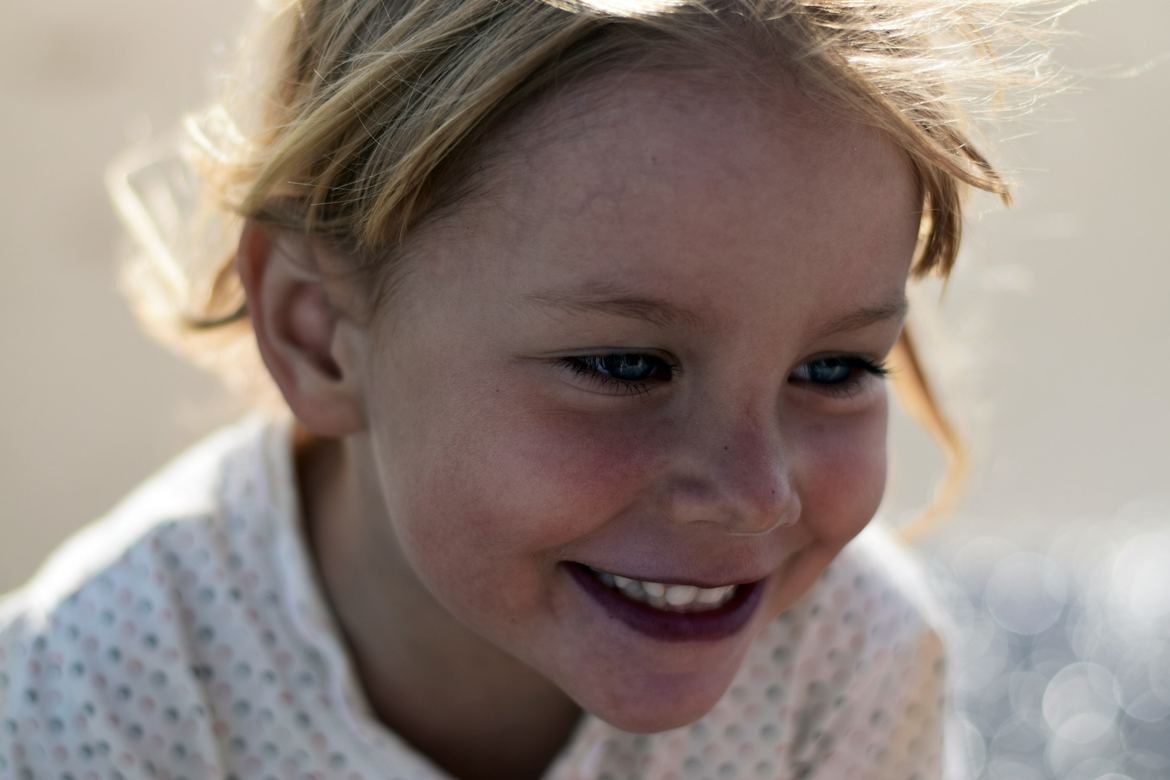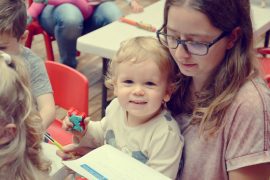By Adrienne Wood
Bill looks up impatiently from his breakfast news article across to his 13-year-old daughter.
“Maddie…” he says with an edge to his voice.
Maddie’s head remains buried in her cellphone screen as she scrolls through her notifications for the day so far.
“Maddie” he repeats a little louder. Maddie’s face suddenly lights up with delight. “Dad! I’ve hit 100 likes on the photo that I posted only last night!!”
Bill groans and rolls his eyes, waiting while Maddie sends excited messages to 3 of her friends to tell them the news. He can see she’s in another world, far away from the household and its responsibilities. The rubbish truck won’t wait. He examines his watch.
“Maddie!” Bill finally explodes.
“What?” She looks up, a frown suddenly smeared across her face. “What do you want now??”
“The rubbish!” says Bill. “Today’s the day the rubbish goes out! You know you have to get that bin out by 8am or it won’t get picked up!”
Maddie locks eyes with him a full 5 seconds or longer. “The rubbish?!” she finally spits out.
“The rubbish?! You want me to put the rubbish out? Now???”
“Yes…” sighs Bill in a weary voice. “We agreed last week that it was your new chore, remember? Now you’re 13 and you have an allowance, you agreed to share in the household chores.”
“You want me to put the rubbish out now?! And wash all the recycling? That’s ridiculous! I’ll be late to school. I haven’t finished my breakfast yet and I’ve still got homework from last night to finish. Do you want me to fail at school??!! You’ve got to be kidding me!”
What is happening here?
In this scenario Maddie is experiencing counterwill – a strong desire to kick back against her father’s request.
Counterwill is that feeling you get when you feel pushed around by somebody else.
It is a feeling that grows more common in older children as they try to separate and define themselves as separate from their parents, but it’s not restricted to the older child – as any parent of a toddler will tell you – and it has an important role to play in developmental maturation.
About counterwill
The term counterwill was coined by Austrian psychoanalyst Otto Rank in the early 1900s but has been brought into common use by Canadian psychologist Gordon Neufeld. The term literally means “against the will of” and it explains that resistance you get from others when you ask them to do something and are met with resistance, irritation or a “cold shoulder.”
Counterwill is no fun to experience as a parent. However, it’s useful to understand that it’s a deep and instinctual response hard-wired in our brains.
The reactivity you may accidentally trigger in your child is instinctive, not something they choose to do after careful consideration.
In the story above Maddie did not think, “I have no intention of helping around the house so what excuses can I think up to tell Dad that I can’t do it?”. She probably had genuine good intentions when she originally agreed to help out with the housework but the abruptness of her father’s request while she was enjoying engaging with friends online triggered an instinctual reaction to push back angrily to his request.
So what’s the point of counterwill anyway?
It protects from outside influence
It’s important to understand that counterwill serves an important developmental function: it triggers a child to refuse to co-operate with somebody to whom they are not attached. Dr Neufeld says “Children were designed to be impossible to manage, unless sufficiently attached to those in charge of them”1. If we “train” children to comply with all adult instructions obediently and never push back, there is a danger that people who do not genuinely care about the child could come in and coerce them into doing things that put them into unsafe situations.
But how does this relate to Maddie and Bill you might ask? Bill is a safe attachment figure, not an outside influence and genuinely cares about his daughter Maddie, so what developmental purpose does counterwill serve here? There are two more factors to consider here.
Counterwill paves the way for separate functioning
Counterwill allows a child to separate from their parents. By learning to use their own voice and to express their own opinions and feelings, children are exploring who they truly are and who they will become when they leave home.
Toddlers first experience a strong wave of counterwill around the ages 18 months to 3 years.
This is their first experimentation with saying “no” and is an important developmental stage as their brain begins to realise they are a separate being from Mum or Dad.
As children approach adolescence around ages 10 or 11 this stage returns as they begin the more permanent journey away from childhood and into adulthood and functioning on their own as a separate being. Psychoanalyst Eric Erikson believed children who do not successfully learn to separate from others during adolescence will experience ongoing identity confusion in later life. They risk becoming people who lack their own identity and who are easily coerced into pleasing others in their relationships and work roles in their adult life.2











